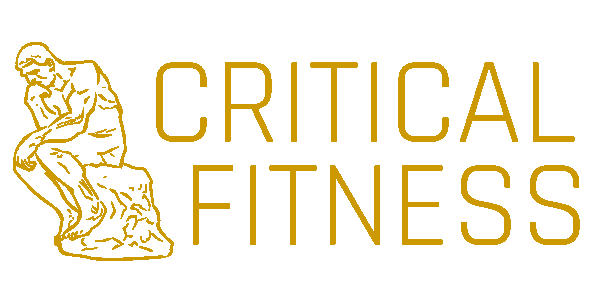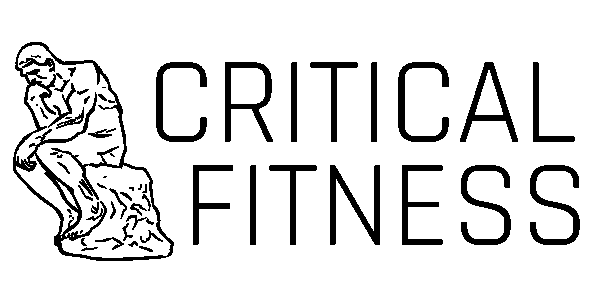The scientists are wrong, and you know it.
And in the face of overwhelming scientific evidence and opinion, you’re prepared to make a stand. Great, I’m here to help.
No matter what you trying to uncover, I can help.
The global warming hoax, obviously perpetuated by scientists trying to protect their funding… the diet hoax, where governments supress news of the benefit of low carb diets to protect food industry profits… and now the COVID-19 hoax, which is just so paedophile elites can trick us into having their toxic vaccines to depopulate the earth and control the survivors…
They all need uncovering.
But often people don’t take you seriously. They will ignore you, even make fun of you. Not because they’re all bad people, but because they are asleep: simple, dozing sheep kept in blissful ignorance by the mainstream narrative.
So you need to make sure your argument is easy to follow and resists criticism, to give you the best chance of convincing these closed-minded sceptics.
And that’s hard.
But like I said, I can help. If you follow the steps I outline below, you may convince at least some of these people! At the very least, they will take you more seriously.

They want to discredit you and keep you quiet. We want to give you the tools to be a real threat to them and their “science”.
Step 1: know the “science”
The general Sun Tzu once said, “if you know the enemy and know yourself, you need not fear the result of a hundred battles.”
Substitute “arguments” for “battles”, and you see where I’m heading with this. If you want to criticise the opposing argument, you should understand it well.
Some of the people you are trying to expose have long “educations” (more like indoctrinations, right?). To do a good job, you need to understand their arguments and their reasoning.
What is their explanation? What evidence are they relying on? What are they ignoring? What is their rationale for doing this?

One of the criticisms they will make of you is that you don’t understand the science like they do. We need to be prepared for this by understanding it better. That way, they can’t make this argument when you correct them.
One of the things that leads to us having misconceptions in our knowledge is a shallow understanding of a topic. This is the accusation that will be levelled at you unless you can talk like an expert on the topic.
Of course, these so-called “experts” also have misconceptions in their knowledge. If we understand their ideas well, we can pull them apart more easily. If not, we may end up talking past each other.
Step 2: represent the science fairly
Once we understand the science, we want to be fair about how we argue against it.
This may seem odd at first, but this will make your argument better, and make you more convincing. There are two examples I want to discuss:
The principle of charity
It’s possible to find a poor argument to attack, there are plenty of them on social media. But if you want to represent your argument and knowledge at its best, then you need to compare it against the best opposing argument.
For example, if you want to challenge the healthy eating advice that authorities provide, you may choose to provide an anecdote proving your point, of people who are overweight, unhealthy, and unfit.
You may think it strengthens your argument, but it’s actually weakens it. If you really want to criticise accepted healthy eating advice, you should use an example of people who follow this advice, not someone who struggles with their choices.

Not a carbohydrate in sight… as nature intended. Just the way we like it here at Critical Fitness.
Of course, eating regular fast food, and drinking too much alcohol, is bad for you. That’s not what these guidelines recommend.
In fact, most people don’t eat according to the dietary guidelines provided by public health bodies. So, we can’t criticise these guidelines for being inappropriate just because we see overweight, unhealthy people around.
Communicated poorly? Maybe, but that’s a different issue.
Likewise, if you want to criticise the use of vaccines, and highlight potential side effects, you could pick on the worst abuses of scientific research, and historic incidents of contaminated, ineffective, or unsafe vaccines.
But that would be to ignore a huge amount of other evidence, that is more representative of how vaccines are prepared and tested today.
To be the most convincing, you need to be able to attack the best arguments and evidence the other side can produce, not the worst! You will need to treat their arguments fairly if you want them to treat yours fairly.
The straw man argument
Another argument mistake to watch out for is the straw man. This is when you exaggerate, or misrepresent, someone else’s argument to make it easier to criticise.
An example would be if you accuse me of not caring about people suffering from vaccine side effects, because I suggested above that we need to criticise our opponents fairly, rather than pick on isolated incidents that both sides of the debate find appalling.
We both know in this case that you are not really criticising what I said, but a parody of it. But someone else, unaware of the original comment, may not know.
This is a common tactic in political debate. It’s great for a soundbite, but not for two sides exchanging and comparing ideas rationally. Criticise the actual argument, not the argument you find easier to criticise. Doing this makes you less credible.
Step 3: examine your own argument carefully
Now that you are familiar with your opposition, you need to be just as thorough examining your own argument.
How strong is your argument? How good is your evidence? Do you directly refute the opposition argument, or drift off into other topics?
It’s easier to dismiss you if your argument is hard to follow, has gaps, or relies on unreliable information. And you don’t want to be dismissed… you want to be taken seriously. So make sure you have a coherent, consistent argument.
As I said above, hold yourself to as high a standard as you hold the other side.
You might disagree with them, and think the scientific method is fatally flawed. But the fact is, scientists are held to high standards when conducting research, analysing results, and reporting their findings.
They might spend years testing and developing their monstrous ideas. Then other scientists provide feedback and criticism to make their arguments stronger. Then they face multiple stages of criticism and feedback as part of the publishing process.
If you are going up against the closed-minded consensus of scientists, your argument must be watertight. Who would the impartial observer find more convincing? The arrogant scientists closing ranks behind their dogma, or your lone voice?

Your ideas may be extremely unpopular. So make your arguments as strong as possible. That makes you a much bigger threat to the mainstream narrative!
Occam’s Razor
It helps if you can make your argument as simple as possible. Even for complex ideas.
For every claim you make, you need to ask yourself one question: “how do I know?”
If you rely on unnecessary assumptions, not only will your argument be harder to follow, it will be harder to prove.
For example, let’s say you reject what the scientists are saying about COVID-19. You could directly criticise the academic research. And that’s hard, because then it means you need to be able to understand it fully (see step 1).
Or you could accuse them of a cover-up. After all, it’s probably true. They could be supressing the real research. They could be under the control of Jewish bankers. Or, they could be supressing the real research, under the control of Jewish bankers, so they can inject us all with vaccines that contain nanobots to control us and track our movements.
For each new claim, just making the claim weakens your argument. Each claim needs to be proven, with high-quality evidence.
Proving a conspiracy or a cover up can be hard, and many of the ones we talk about today may not be true. But there have been real conspiracies uncovered in the past.
You might be onto something about the Jewish bankers… but you need to prove that not only is there a cover up, but that Jewish bankers are behind it. And in my third example, you need to also prove nanobots exist, then prove what they are being used for! That might be tough.
If you can keep your arguments simpler, and easier to prove, they can’t be dismissed as easily.
Step 4: check your sources
Now you’ve identified your arguments, and the sources that back them up, we need to make sure our sources are good ones.
Here are a few things to consider:
Avoid cherry-picking
When you are reading about a topic, read sources that give you a fair representation of the evidence. That means you will come across evidence that disagrees with you.
And that’s ok. You need to be exposed to arguments on both sides (know your enemy, remember?)
If you use leading search terms when googling, then selectively read those things that appeal to you the most, you are reinforcing your own opinion. But you are probably not strengthening your argument.
Read widely and challenge yourself. In essence, you are holding yourself to a higher level than your intellectual opposition.

Don’t be the guy that reads this whole article, then picks out the one piece of information that supports your already held opinion
Check the author and date
More reliable authors are more likely to be happy putting their name to their work. You can then read more of their work, identify their biases, check their qualifications, etc.
If the article is anonymous, you can’t do any of these things. And some anonymous sources are written like that on purpose.
Likewise, our knowledge can change quickly. If there is no date on a source, it’s hard to tell how recently it was written. Again, some people do this on purpose, so their work appears more relevant.
Others will update their work or will write new work as their knowledge changes. This isn’t a guarantee we can trust them, but it helps!
If you’re using science to support your argument, make sure you understand it!
This is easier said than done. As we mentioned at the beginning, this stuff can be very hard to read.
And it is written on the assumption that you are also an “expert” in the field.
So you need to understand research methods and data analysis. You need to know the other papers they are citing. And you need to know if the conclusions of the research match the data.
This will help you know if the article that you are citing is trustworthy, or the work of poorly qualified, fringe quacks!
But this takes a lot of extra reading. And you may need help understanding the jargon used in the article. But it’s worth it, as you can you catch the scientists in a lie if they cite a source incorrectly!
Step 5: pick your best arguments
There is a tactic used in debates sometimes called the “Gish Gallop”. It’s also called fire-hosing.

This is when in an argument, one side presents dozens and dozens of loosely connected claims, one after another, regardless of how good they are. Some might be great, but some are awful.
The aim here is to overwhelm the other side with too many arguments to address… then claim that they don’t have the answers!
But while this might help you feel like you win the argument, arguing against the Gish Gallop is kind of like playing chess with a pigeon. You might be playing, but the pigeon isn’t – it just shits on the board, knocks some pieces over, then struts around like it’s checkmate!
The point of an argument is to compare our contrasting ideas and evidence, and convince the other person, or the listener, or come up with a consensus opinion. You can’t do this if you ruin the discussion.
Step 6: compare the arguments on each side
This can be hard to do fairly, especially if you have a strong interest in the topic. It might be worth getting help from someone who doesn’t have a strong opinion.
Examine both the quantity, and the quality, of the arguments on each side (see Step 1 earlier: you already know the enemy). Again, don’t cherry pick. Don’t disregard contradictory evidence because you disagree with it, this is a very common form of bias.
Two things could happen here. The first is you confirm your opinion, the most likely outcome. But you could find that your opinion isn’t perfect. Or there are flaws in your argument you need to address. Now we arrive at the most important part!

It’s hard to do, but try to consider the possibility that you are wrong, and will need to adjust your opinion. “Scales of Justice – Frankfurt Version” (CC BY-SA 2.0) by mikecogh
Step 7: adjust your opinion as necessary
It doesn’t have to be a lot. Maybe you were a little extreme in your earlier opinion. Maybe you got some small details wrong. That’s ok. Doing this extra reading has helped you clarify your position, so you can make a small adjustment.
In fact, this looks good to the other side! It makes you appear more reasonable.
If you can show that your opinion is flexible and informed by good evidence, others will be more likely to engage you in respectful conversation, and less likely to ignore you. A good scientist often modifies their opinion as research changes.
In fact, I describe a personal experience of this elsewhere on the site.
What if your argument doesn’t hold up?
Rather than being wrong about some minor details, what if you were wrong about a lot?
That’s ok, it happens to the best of us. In fact, the scientific method relies on scientists proving each other wrong. Sometimes what we thought was right for decades needs adjusting, or is shown to be completely wrong!
Being able to admit when you are wrong makes you look better. And it means that when you take a firm stand about something else, and you don’t shift your opinion, others will again take you more seriously.
People still don’t want to discuss this with you. Why not?
The first thing to consider is how you are presenting your argument. Are you being nice when you present your argument? Or are you annoying people?
If you are using nasty language, are dismissive of others, or if you bombard people with irrelevant material, they will be less likely to want to engage with you!
Here are a couple of other possibilities:
- Maybe you are not examining the information fairly. Confirmation bias affects all of us in some way. This can be very hard to overcome, so get opinions from others if you think you are making a mistake – preferably someone who will tell you if you are wrong.
- Maybe you are expecting certainty when it is not possible. Scientists often use words like “may”, and “possibly” when stating their conclusions. That’s because unless they can state something with 100% certainty, they don’t make definitive claims. And in real life, absolute certainty is hard to find!
- Are you prepared to accept the possibility you are wrong? If someone has a strong counterargument, do you accept it, and modify your opinion? Or do you dismiss this argument, or ask for evidence you didn’t originally require? This wouldn’t be a fair response to your information, so be careful not to respond to someone else this way.
- Maybe you aren’t very nice. Or maybe you’re yelling. If you want to change someone’s mind, they will probably need to like you, or at least respect you. Earn this respect!

Be prepared to accept a strong counter-argument
Summing Up…
After spending so much time examining your opinion and arguments, and those of others, you might notice a change.
Your position may become more moderate, as you weigh up both sides of the argument, identify flaws in your argument, and identify uncertainty you were not aware of earlier.
And this is ok. There are shades of grey in most arguments, and an expert will usually be very aware of these shades.
But if you can go through this process honestly and it’s still clear that your position is more correct than the scientific consensus, well done. Criticise loudly and often! You may be on to something! Uncover the conspiracy!



Recent Comments